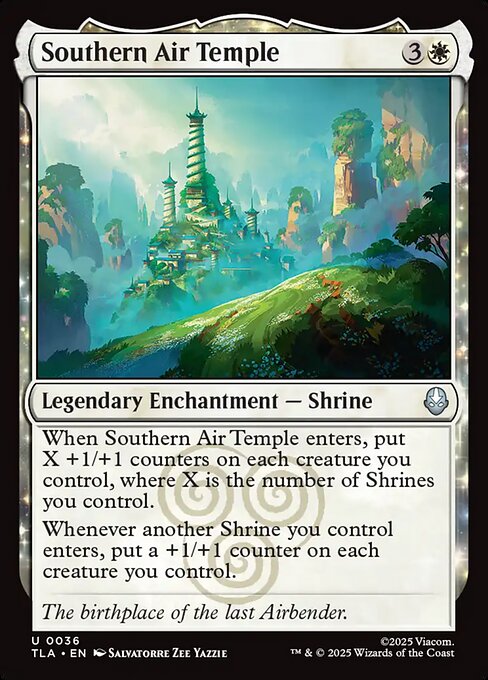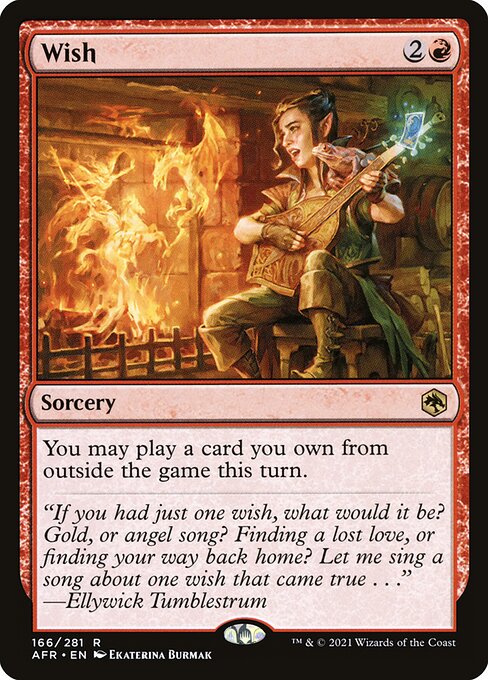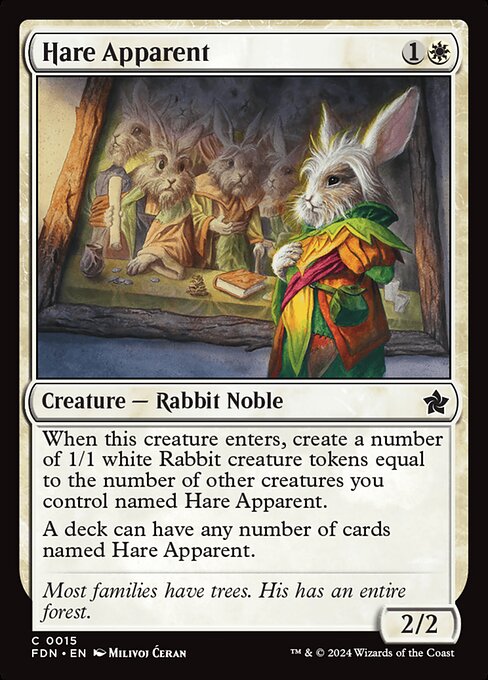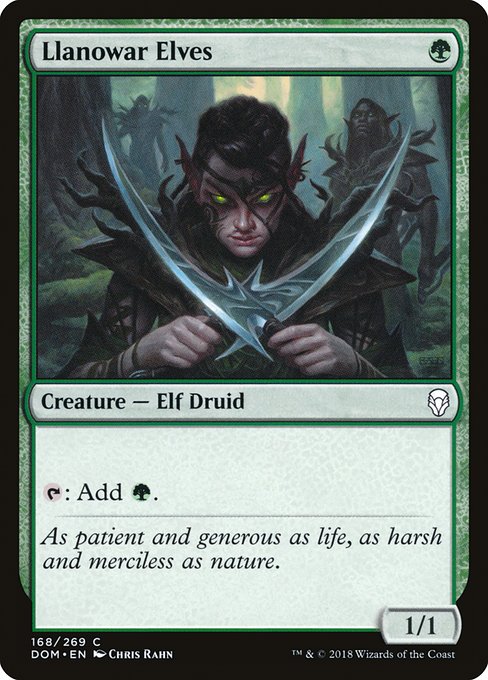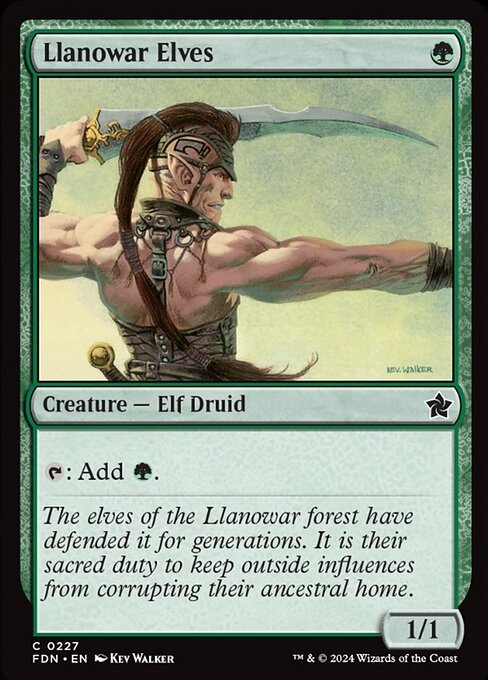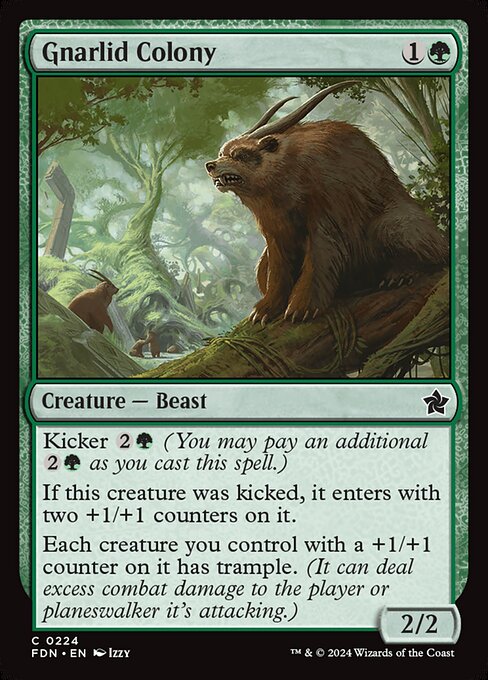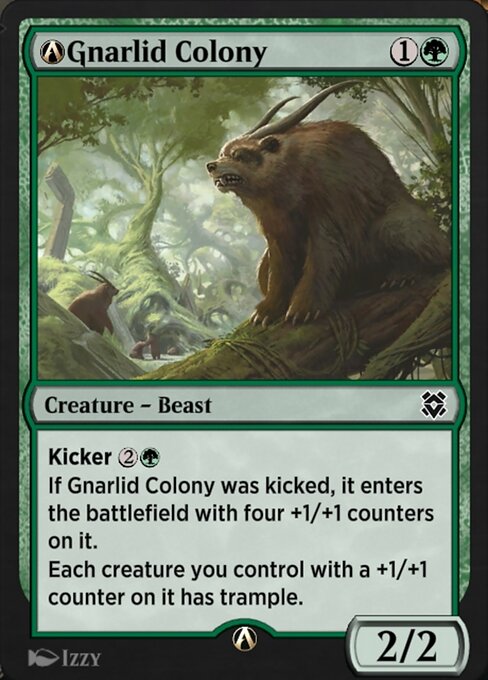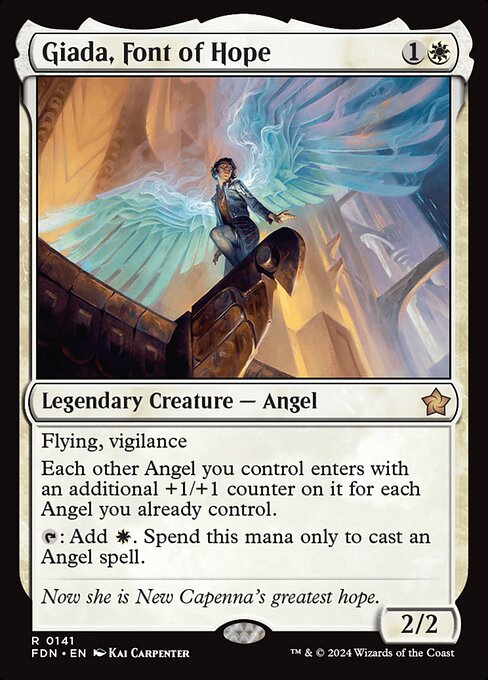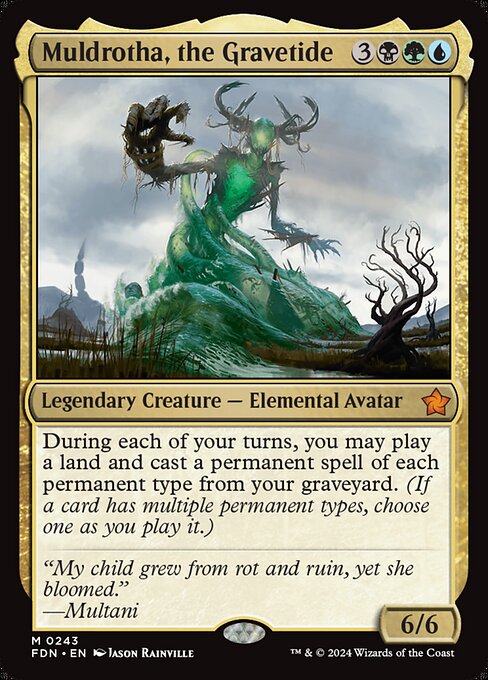Last updated: November 18, 2025 Background art: Southern Air Temple by Salvatorre Zee Yazzie
New Player Guide
You've installed MTG Arena and played through the Tutorial and Color Challenges, and maybe a few games more. You're wondering about the game modes, what are wildcards, what is the mastery pass? You've come to the right place!
This is not a strategy guide, but something to serve as an up-to-date summary on the game modes and different systems that make up the MTG Arena experience. We'll start with how you get cards, then explain the different play formats, and finally the Mastery system, with free codes and a few pointers on where to go next at the end.
Index
- Starter Decks
- Wildcards
- Card Packs
- Individual Card Rewards (ICRs)
- Duplicate Protection and the Vault
- Card Styles
- Constructed and Limited
- Sideboards, Bo1 and Bo3
- Always Available Formats
- Limited Time Event Formats
- Community Formats
- Ranked Ladder
- Mastery System
- Achievements
- What Now?
- Free Redeemable Codes
- Bonus Tips
Starter Decks
You'll get 5 decks by completing the Color Challenges, one for each of the five colors of Magic. These make up the Arena Base Set. After that you will receive Quests that will reward you with two-color decks on completion, until you have unlocked 10 more decks, one for each two-color combination.
You can use these decks to play, or start building your own decks from their contents. To get more cards to expand your experience, you need Wildcards, Card Packs or Individual Card Rewards (ICRs). You can also buy more preconstructed decks from a changing selection in the store.
Wildcards
Wildcards are cards you can get randomly from packs or the wildcard tracks that can used to craft any card of the same rarity. They're very important for you to be able to build the specific decks you want instead of depending only on luck.
In the packs screen you see two circles with a wildcard in the center. These are the wildcard tracks. Opening one pack progresses both tracks by one, every full circle of 6 giving you an uncommon wildcard from the first track and a rare wildcard from the second track, with every 5th completion of the rare track awarding a mythic rare wildcard instead. Wildcards can also be found randomly in packs, with every 3 packs containing a common, every 5 an uncommon and every 24 a rare and a mythic wildcard on average.
You can click the Craft button or use filters to display cards you don't own in the collection and deckbuilding screens to use wildcards to get cards you have 0 copies of, or just click on a card you already have at least one copy of to open a screen that allows you to craft more. You can also add cards you don't own into a deck (displayed darkened with a red number) and click Complete Deck to bring up a dialog that asks if you want to use a number of wildcards to craft all the cards you need at once.
Card Packs
In general there are three types of card packs in Arena:
Store Packs
- Contain 8 cards:
- 1 rare or mythic
- 2 uncommons
- 4 commons
- 1 more common / bonus sheet card (see Historic format later)
- Acquired as rewards from events and leveling up, or bought from the Store with gold or gems
- Randomly contain wildcards, and opening one pack advances your wildcard tracks by one
- Only contain rares and mythics you have less than 4 copies of
Golden Packs
- Contain 6 cards:
- 1 mythic from a Standard-legal set
- 2 rares or mythics from the latest set
- 3 rares or mythics from a Standard-legal set
- You acquire one Golden Pack for every 10th Store Pack you purchase of the latest set
- Never contain wildcards but opening a pack still advances your wildcard tracks
- Only contain cards you have less than 4 copies of, and at least two cards from the latest set
Limited Packs
- Sets released in 2023 and earlier contain 15 cards:
- 1 rare or mythic
- 3 uncommons
- 9 commons
- 1 more common / bonus sheet card
- 1 common land
- Sets released in 2024 and after contain 14 cards:
- 1 rare or mythic
- 2 cards of any rarity
- 3 uncommons
- 5 commons
- 1 more common / bonus sheet card
- 1 more common / a Special Guest card / a card from the List (see Historic format later)
- 1 common land
- Always used in Limited events like Draft and Sealed, which are also the only place you can acquire them
- Never contain wildcards or advance your wildcard tracks
- May contain rares and mythics you already have 4 copies of
Following the format of Store Packs there are also:
- Mythic Packs with a mythic rare guaranteed in the rare/mythic slot
- Alchemy Packs with cards from a smaller set as rares, mythics and uncommons, and cards from a paired bigger set as commons (see Alchemy format later)
Individual Card Rewards (ICRs)
A card you receive outside a pack or crafting it with a wildcard is an Individual Card Reward, or ICR. An ICR is a random card of a specified rarity that also has a small chance of upgrading to a card of a higher rarity. You can get them as rewards from competing in Events, from Daily Wins or the Mastery reward track. They are usually restricted to cards legal in both the Standard and Alchemy formats, but may be specifically Historic ICRs which will be cards not legal in those instead.
Duplicate Protection and the Vault
As you can only use a maximum of 4 copies of a card in your constructed decks, you don't want to open too many of the same card from packs. Duplicate protection refers to a system that's in place in Arena which prevents you from getting the same rare or mythic more than four times. If you already have a playset, 4 copies, of a rare card in a certain set, you will always get some other rare instead when opening a 8-card pack of that set. If you have 4 copies of every rare in the set, you will instead get 20 gems whenever you would open a rare. The same applies to mythic rares, except if you have 4 copies of every mythic you will get 40 gems whenever you would open one instead. Duplicate protection for rares and mythics is tracked separately.
If a card can be found as a rare or mythic with the same artwork from two or more different card sets, if you have 4 copies total between the different versions you won't find more copies of the card in packs until you have playsets of every other rare or mythic in the set. Banned rares and mythics will similarly be the last cards you open in a set.
You can open more than 4 copies of any common or uncommon, but instead of gems you will get a certain amount of Vault progress for each extra common or uncommon, 0.1% and 0.3% respectively. When you have 100% saved up, you may open the vault which rewards you with wildcards: 1 mythic, 2 rares and 3 uncommons. The Vault is displayed as a treasure chest in the top right of the interface, hovering over it will display your progress percentage and clicking on it when you have at least 100% Vault progress will open it.
Limited Packs are not duplicate-protected in the sense that you can open rares and mythics you already have 4 copies of, but every extra rare and mythic gets converted to 20 and 40 gems respectively and extra commons and uncommons contribute to your vault progress. This is also how duplicate ICRs work.
Card Styles
Card Styles are cosmetic items that change the look of cards you own, but are not cards themselves. You can buy them in the store or directly from your card collection and acquire as rewards from events for example, but in most cases they do not come with the actual card they are for. However, you only need to obtain a card style once to be able to apply it to all copies of the card. You can hide all card styles in the options menu if you only wish to see the regular forms of cards while playing.
Constructed and Limited
In Magic: the Gathering there are several different formats that affect how you play with your cards. In broad strokes there a two different types of formats, Constructed and Limited. Constructed refers to formats where you build your own deck from any cards you have in your collection that are legal in the format, such as Standard, Alchemy, Historic and Brawl. Limited refers to formats where you build a deck not from your collection, but from a new set of randomized booster packs, such as Draft and Sealed. In addition, Preconstructed refers to something where a ready-to-play deck is built for you.
Sideboards, Bo1 and Bo3
A deck's sideboard is a set of up to 15 cards used to swap cards in and out of your main deck between games to adapt to your opponent's strategy when playing Best of 3 matches (first player to 2 wins in 3 games, abbreviated Bo3). Game modes with the Traditional prefix are played as Bo3 matches, while those without are single games, often called Best of 1 or Bo1. A deck played in Bo1 modes can also have a sideboard of up to 7 cards, but it's only useful when someone is playing cards that are able to get you a card "from outside the game", which means from the sideboard in actual gameplay (for example the card Wish). In Limited formats every card in your card pool but not in your deck is considered to be in your sideboard.
Always Available Formats
STARTER DECK DUEL (Preconstructed)
In this free event you can play against other players using just the starter decks. Recommended for beginners!
JUMP IN! (Preconstructed)
If you want to acquire and try out more cards without having to build a new deck, the Jump In! event is your best bet. In the event you select one themed 20-card Jump In! packet from a random selection of three twice, resulting in two packets you combine to make a 40-card deck. Play as many games as you like until you want a new deck, for which you need to resign and pay for the event again. You get to keep all the cards from the packets you pick.
DRAFT (Limited)
In Draft the players sit in a group of 8 (called a pod) and everyone gets three Limited packs. You open the first pack, pick one card and pass the rest of the pack to the player on your left while receiving a pack with one less card from your right. You continue picking cards and passing packs until there are no cards left. Then you open the second pack, pick a card and this time pass it to your right while getting a pack from the player on your left. This is repeated in a similar manner to the first pack until moving on to the third and final pack that will once again be passed to the left until there are no more cards and packs left.
At the end of the third pack you will be left with the cards you picked, your card pool, from which you must build a deck with at least 40 cards (you may add as many Basic Lands as you need from outside the pool). Unlike in most Constructed formats, you may have more than 4 copies of any card in your deck, up to as many as you managed to pick during the draft. Every card in your pool but not in your deck is your sideboard, and you can freely change your deck between matches.
In Pick-Two Draft your pod has only 4 players and you pick two cards at a time, otherwise it works the same as a regular draft.
In Quick Draft other players than you in the 8-player pod during drafting are bots with simulated preferences for card picks, not actual human players, so you can take as long as you want for your picks, even quit between picks and return later. However, the games you play with your drafted deck are still against actual people.
Quick Draft and Premier Draft are Bo1 and affect your Limited Rank. The set available for Quick Draft changes every two weeks. Traditional Draft is Bo3 with the latest set, and doesn't affect your rank.
STANDARD (Constructed)
Standard decks are 60 or more cards with an optional sideboard of up to 15 cards, using no more than 4 copies of any one card outside of Basic Lands (unless the card says otherwise, for example you may put any number of copies of Hare Apparent in your deck).
Standard is a rotating format, which means not all cards in the game are allowed in Standard decks, specifically only cards released within the last three years of sets plus the Foundations set are available. Standard rotation happens once a year with the release of the first card set of the year (starting Q1 2027). When rotation hits, a number of older sets will no longer be playable in Standard. Also keep in mind that some sets released on Arena are never legal in Standard in the first place.
Currently you can use cards released in sets after and including Wilds of Eldraine in Standard decks. The next Standard rotation will happen in Q1 2027.
You will keep your cards leaving Standard after rotation, but most of them can only be played in other formats. The exception are cards that have another printing in a Standard-legal set: you can keep using old copies of those cards even if the art and set symbol are different! (Example: you can play your Llanowar Elves from Dominaria in your Standard decks even after Dominaria has rotated out of Standard because a version of Llanowar Elves is also in the Standard-legal Foundations set.)
Currently Standard-legal sets:
Legal until Q1 2027:
- Wilds of Eldraine
- The Lost Caverns of Ixalan
- Murders at Karlov Manor
- Outlaws of Thunder Junction & The Big Score
- Bloomburrow
- Duskmourn: House of Horror
Legal until at least 2029:
Legal until Q1 2028:
- Aetherdrift
- Tarkir: Dragonstorm
- Final Fantasy
- Edge of Eternities
- Through the Omenpaths
- Avatar: The Last Airbender
ALCHEMY (Constructed)
Alchemy is another rotating format that follows a similar deckbuilding rules as Standard, but introduces a few things that take advantage of it being a digital-only format: rebalanced cards and Alchemy card sets. Also, the Arena Base Set never rotates out of Alchemy.
Rebalanced cards are formerly existing cards that have been changed to weaken them or make them stronger. For example, see Gnarlid Colony and its rebalanced version, denoted by the "A" symbol in front of the name. In Alchemy you will play the rebalanced version of a card if it exists, instead of the standard one. Any copies of the standard version of the card you receive will also come with the rebalanced version.
Alchemy also includes sets of cards that are paired with a Standard set and rotate out of the format at the same time as that set does. Most of them are about 30 new cards each. Alchemy Packs come with Alchemy-exclusive rares and uncommons, and commons from the set they're paired with. Once all Alchemy rares have been collected, they'll be replaced with rares from the paired set. March of the Machine: The Aftermath works the same way, except the new cards were also Standard-legal.
Sets rotate out of Alchemy one year earlier than Standard, but rotation still happens at the same time as Standard. Currently you can use cards released in sets after and including Bloomburrow in Alchemy decks. The next Alchemy rotation will happen in Q1 2027.
Currently Alchemy-legal sets:
Always legal:
Legal until Q1 2027:
- Bloomburrow
- Duskmourn: House of Horror
- Foundations
- Aetherdrift
- Tarkir: Dragonstorm
- Final Fantasy
- Edge of Eternities
- Through the Omenpaths
- Avatar: The Last Airbender
As a digital-only format, it's more likely for a rebalanced version of a card to appear instead of a ban when something is too strong.
PIONEER (Constructed)
Pioneer is an eternal format, which means there is no rotation and cards will only be added to the card pool and removed only with bans. It includes every card that was playable in Standard from Return to Ravnica forward (though some of them are missing from MTG Arena). It does not use the rebalanced or Alchemy set cards.
The card pool gets expanded through Standard set releases and Anthologies, bundles of 20 or 25 different cards. Sometimes entire sets from the past are also brought into the game. There are also Remastered and Masters sets that combine past Standard sets. MTG Arena has every Standard set release since Ixalan. In addition, these sets are all legal in Pioneer:
- Explorer Anthology 1 • 2 • 3
- Amonkhet Remastered
- Kaladesh Remastered
- Shadows Over Innistrad Remastered
- Khans of Tarkir
- Pioneer Masters
HISTORIC (Constructed)
Historic is an eternal format where you will be able to use all cards released on Arena in your deck, provided they are not specifically banned from the format or don't have a rebalanced version (see the Alchemy format above), which is playable in Historic instead.
Sometimes cards are suspended instead of fully banned, which means a card is banned for a period of time as the developers monitor whether a card should be fully banned or reintroduced to the format later.
In addition to cards legal in Standard, Alchemy and Pioneer, these sets are legal in Historic:
- Arena Anthology 1 • 2 • 3 • 4
- Historic Anthology 1 • 2 • 3 • 4 • 5 • 6 • 7
- The Lord of the Rings: Tales of Middle-earth
- Modern Horizons 3
- Jumpstart (with some changes from the paper set)
- Jumpstart: Historic Horizons
- Foundations Jumpstart
- Avatar: The Last Airbender Eternal (without Sol Ring)
Packs of some sets also come with one card from a special set called a bonus sheet which is not legal in Standard, Alchemy or Pioneer, but is playable in Historic. Here are those sets, with the main set in brackets:
- Mystical Archive (Strixhaven: School of Mages)
- Retro Artifacts (The Brothers' War)
- Shadows of the Past (Shadows Over Innistrad Remastered)
- Multiverse Legends (March of the Machine)
- Enchanting Tales (Wilds of Eldraine)
- Breaking News (Outlaws of Thunder Junction)
- Through the Ages (Final Fantasy)
- Stellar Sights (Edge of Eternities)
- Omenpath Bonus Sheet (Through the Omenpaths)
- Source Material Cards (Avatar: The Last Airbender)
Starting from Murders at Karlov Manor, ten Special Guests appear in packs of each new set.
40 cards from the List also appear in packs of Murders at Karlov Manor specifically.
TIMELESS (Constructed)
Timeless is another eternal format, which allows you to play all cards released on Arena. Unlike Historic, no cards are banned, but some cards are restricted, which means you can only include one copy of that card in your deck. Timeless also does not use the rebalanced versions of cards for which a physical printing exists. Digital-only cards are still rebalanced as usual.
BRAWL (Constructed)
Brawl is Arena's closest equivalent to the popular Commander format in the physical card game. It uses the same cards as Historic with a separate banlist, but it is also a singleton format, which means you can include only a single copy of any card except for Basic Lands in your deck. You may still have more than one copy of cards like Hare Apparent. Decks are 100 cards including one commander, which can be any legendary creature, planeswalker, Vehicle or Spacecraft (with a power and toughness box). Other cards in the deck must be colorless or within your commander's color identity, which consists of all colored mana symbols in its casting cost or rules text. For example, if your commander is Giada, Font of Hope, you can put only white or colorless cards in your deck, but if your commander is Muldrotha, the Gravetide, you can include black, green, blue and colorless cards.
In Brawl players start at 25 life. During the game your commander card sits in a separate area called the command zone, displayed castable near your hand similar to cards in your graveyard or exile that can be cast or activated. You may cast your commander from the command zone at any time for its mana cost + 2 for each time it has been cast from the command zone previously that game. Whenever your commander would change zones (when it's put into the graveyard or exiled etc), you may put it back in the command zone instead. In Brawl you also get one free mulligan without needing to put cards on the bottom of your library, and games are Bo1.
There is also Standard Brawl which is the same except with a 60-card deck and you are restricted to Standard-legal cards.
Cards banned in Standard Brawl
Limited Time Event Formats
Some game modes are only available for a limited time, most often as Midweek Magic events every Tuesday 2pm to Thursday 2pm PT. There have been several experimental event formats, but here are some of the more common ones that are likely to return relatively often. These are all usually played Bo1.
SEALED (Limited)
In Sealed, instead of picking cards one by one, you just get to open six Limited packs and from their contents build a deck with at least 40 cards, adding Basic Lands as necessary. Just like Draft, if you managed to open more than 4 copies of a card, you are free to use all of them in your Sealed deck. Every card you opened but didn't put in your deck is in your sideboard, and you may freely change your deck between games. Sealed is usually available for every new set for a few weeks.
CUBE DRAFT (Limited)
Cube Draft is similar to a Premier Draft where instead of a normal set you draft from a curated set of cards across all cards in Arena. Packs in Cube Draft don't follow the normal rarity distribution of Limited packs, instead it is possible to open multiple rares in the same pack, for example. However, it is also a so-called Phantom draft where you don't keep the cards you pick.
PAUPER (Constructed)
Similar to most Constructed formats, in Pauper you have a 60-card deck and a sideboard with a maximum of 4 copies of any one card, but the twist is you may only use cards released at the common rarity. Prefixes like Standard or Historic Pauper determine what sets of cards you can use.
ARTISAN (Constructed)
Same as Pauper, except you can also include cards released at uncommon in your deck.
MOMIR (Preconstructed)
In Momir you don't build a deck, instead you're provided with a 60-card deck filled with 12 copies of each Basic Land. Once every turn, you may pay X and discard a card to create a creature token copy of a random creature card with converted mana cost X. There are also variations where your deck includes some other cards than Basic Lands.
Community Formats
By challenging players directly you're not confined to the modes readily available on Arena either! You can play Pauper while there is no event running, make up your own rules or play one of the custom formats popular among a larger number of players and find opponents through online communities.
GLADIATOR (Constructed)
A singleton format where you play a 100-card deck with no duplicate cards, sideboards or commanders and start at 20 life. It is usually played as Bo3 matches and every card on Arena is legal except for its own ban list, and you use the cards in their original form, not rebalanced. You can check out the full rules here.
Ranked Ladder
The Ranked Ladder in MTG Arena operates by monthly seasons with Bronze, Silver, Gold, Platinum, Diamond and Mythic ranks. Each rank is further divided into four tiers, except for Mythic where you get a percentage of up to 99% until you reach the top 1500 which gives you a numbered placement. Constructed Ranked game modes all have the Ranked prefix, while for Limited Quick Draft and Premier Draft affect your rank.
Winning advances you through tiers and losing pushes you back, but you can't fall down a rank once you reach it (when you reach Silver you can't fall back down to Bronze during that season, for example). Constructed and Limited have separate Ranked ladders. At the end of every month you will get a new rank and rewards based on the rank you reached that month in both Constructed and Limited. You must play at least one Ranked game each month to be eligible for rewards.
Here's a table for reference (CS refers to Card Style, which specific cards they are changes every month):
| Rank | Steps to Advance Tier (Constructed/Limited) | Steps Up from Win (Bo1/Bo3) | Steps Down from Loss (Bo1/Bo3) | Season End Rewards | Tier | Season End New Rank |
|---|---|---|---|---|---|---|
| Bronze | 6/4 | 2/4 | 0/0 | 1 Pack | 4 | Bronze 4 |
| 3 | ||||||
| 2 | ||||||
| 1 | Bronze 3 | |||||
| Silver | 6/5 | 2/4 | 1/2 | 1 Pack 500 Gold | 4 | |
| 3 | ||||||
| 2 | Bronze 2 | |||||
| 1 | ||||||
| Gold | 6/5 | 2/4 | 1/2 | 2 Packs 1000 Gold Uncommon CS | 4 | Bronze 1 |
| 3 | Silver 4 | |||||
| 2 | Silver 3 | |||||
| 1 | Silver 2 | |||||
| Platinum | 6/5 | 1/2 | 1/2 | 3 Packs 1000 Gold Uncommon CS Rare CS | 4 | Silver 1 |
| 3 | Gold 4 | |||||
| 2 | ||||||
| 1 | Gold 3 | |||||
| Diamond | 6/5 | 1/2 | 1/2 | 4 Packs 1000 Gold Uncommon CS Rare CS | 4 | |
| 3 | Gold 2 | |||||
| 2 | ||||||
| 1 | Gold 1 | |||||
| Mythic | 5 Packs 1000 Gold Uncommon CS Rare CS |
To participate in a Qualifier Weekend event where you can win a spot in high level tournaments, you need to be in the top 250 in either Constructed or Limited at the end of a season or do well in a Qualifier Play-In event. For info on the current ranked season, look here. You can also check out the official site for competitive Magic.
Mastery System
The Mastery System is a rewards system involving winning games and completing quests to gain XP to level up with. If you're familiar with battle passes in other games, this is similar. Levels give you different rewards, such as packs. You can also get Mastery Orbs from leveling up, which can be used on the Mastery Emporium to unlock cosmetics. Your Mastery level resets every time a new card set is released, about every three months, and the rewards change as well. Mastery is typically 60 to 90 levels (depending on the time between card sets) and each level requires 1000 XP. The ways to get Mastery XP are:
- Daily Quests - 500 XP each, you get a new quest at 2am PT, can hold up to three at a time
- Daily Wins - 25 XP for each of the first 10 wins every day, resets at 2am PT
- Weekly Wins - 250 XP for each of the first 15 wins every week, a new week starts at 2am PT on Sundays
- Special Events - While rare, some special events may give XP, usually 1000 XP for the first win
- Promotional Codes - Varying amounts of XP have occasionally been given out as free redeemable codes
You can level up for free to get up to around 30 packs of the latest set and 5 Mastery Orbs, with the option of buying a Mastery Pass for additional rewards such as more packs and card styles, gold, gems, pets, sleeves and a player avatar. The Mastery Pass costs 3400 or 5400 gems, the latter of which gives you 10 000 XP automatically. You can buy the Mastery Pass at any point until a few hours before the next set comes out and still receive all Mastery Pass specific rewards up to your current level.
You're guaranteed to go a little over the maximum Mastery level if you complete all your Daily Quests and Weekly Wins from the release of a set, even without the bonus XP from the more expensive pass option. Missing them can be compensated with the other ways of earning XP to some extent. You can use tools like MTG Arena Zone's Mastery Calculator to estimate your expected final level.
Achievements
You can complete various objectives over time to gain cosmetic rewards through the Achievements system. Achievements are separated into several categories with their own reward tracks that advance by one for each completed achievement.
What Now?
Now that you hopefully understand how MTG Arena operates, go play what interests you! In addition you might like to search for guides about optimal ways to collect cards, and start learning strategy for Constructed and Limited from the wealth of articles, podcasts and channels out there (one of my favorites to watch is LegenVD).
You might also want to try third-party deck/collection tracker software that keep records the game doesn't provide by itself and may also include helpful in-game overlays (such as 17Lands or Untapped.gg).
It's also recommended to check official news whenever they come, such as the Announcements every Monday and Patch Notes whenever a new update is out (though they come with a delay), to avoid surprises and confusion. You can also check the online status of the game here. I will try to keep this guide as up-to-date as possible, so you can use it as reference in the future as well.
Remember to grab the free codes below on your way out!
Free Redeemable Codes
There are several promotional codes that have been given out in paper booster packs or through events and email. Below is a list of every available non-unique code you can redeem in the Store for free! Each code works once per account.
Bonus Tips
While not the focus of the guide, here is a small list of some confusing game rules that new players might want to know about:
- All nonland cards are spells, not just instants and sorceries.
- Lands are not cast, they are only played. You can't play lands with an effect unless it says play, not cast.
- Lands are not the colors of mana they produce, they are in fact colorless. A card's color is determined by its casting cost, which lands do not have.
- Reducing a creature's toughness to 0 or below with a -X/-X effect removes it, but doesn't destroy it. Thus, it gets around indestructible.
- An exiled card leaves the battlefield, but it doesn't die. Dying means specifically going from the battlefield to the graveyard. Exiling also doesn't destroy and gets around indestructible.
- Effects that do not say target can remove cards with hexproof and protection, because they are keywords that prevent specifically targeting, not being destroyed for example. Protection can still prevent damage from the non-targeting card.
- If the only blocking creature in front of an attacker is removed after it has been declared as a blocker, the attacking creature is still considered blocked and cannot deal damage. However, if the attacker has trample, it can deal full damage to the player or planeswalker it was attacking.
- If an attacking creature has both deathtouch and trample, it only needs to deal 1 damage to each creature blocking it and the rest can be dealt to the attacked player or planeswalker. This applies even if any of the blockers have indestructible or protection.
- First strike and double strike do not work when fighting. Fighting doesn't count as attacking or blocking and the damage dealt is not combat damage.
- Losing life is not damage by itself, but damage to a player results in life loss. Paying life is also life loss.
- Doubling or halving life totals counts as gaining or losing that much life. Setting life total to a number also counts as gaining or losing the difference to the previous life total.
